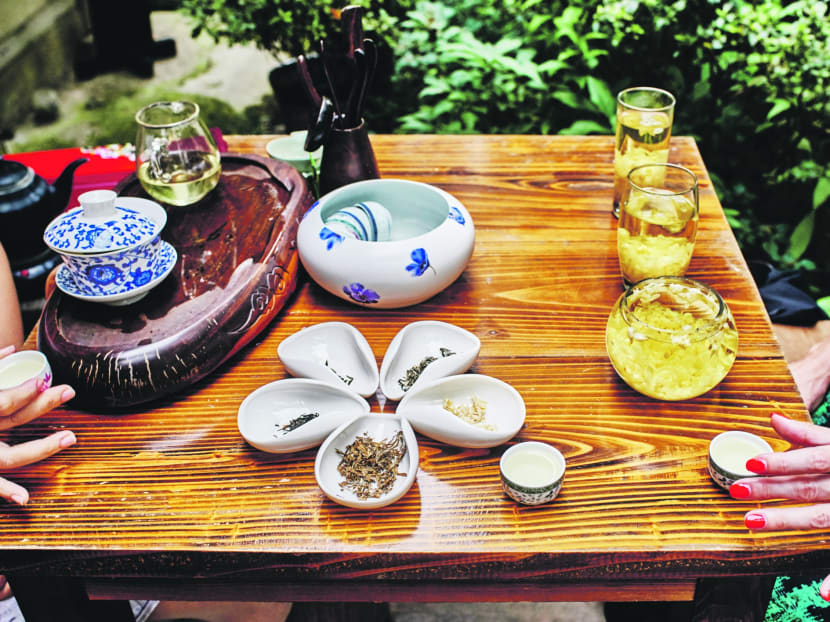Drinking tea could cut risk of dementia: NUS
SINGAPORE – Drinking tea regularly could lower the risk of cognitive decline among the elderly by half, and among those genetically inclined to develop Alzheimer’s disease by up to 86 per cent, National University of Singapore (NUS) researchers have found.
SINGAPORE – Drinking tea regularly could lower the risk of cognitive decline among the elderly by half, and among those genetically inclined to develop Alzheimer’s disease by up to 86 per cent, National University of Singapore (NUS) researchers have found.
The study, led by Dr Feng Lei of NUS Yong Loo Lin School of Medicine’s psychological medicine department, was conducted over several years on 957 Chinese seniors aged 55 and above. Results would be consistent across races, said the researchers in a press release issued by NUS on Thursday (March 16).
Dr Feng explained that the long-term benefit of tea consumption comes from the bioactive compounds in tea leaves, such as catechins and theaflavins. “These compounds exhibit anti-inflammatory and antioxidant potential and other bioactive properties that may protect the brain from vascular damage and neurodegeneration,” he said. It does not matter what type of tea it is — green, black, or oolong — as long as the beverage is brewed from tea leaves.
Singapore has a rapidly ageing population, and Dr Feng stressed that the findings have important implications for dementia prevention, given that effective treatment for such neurocognitive disorders remain elusive and current prevention strategies were “far from satisfactory”.
“Tea is one of the most widely consumed beverages in the world. The data from our study suggests that an inexpensive lifestyle measure such as daily tea drinking can reduce a person’s risk of developing neurocognitive disorders in late life,” he said.
According to a nationwide study published in 2015, an estimated 1 in 10 people aged 60 and above has dementia in Singapore. There were around 40,000 dementia patients that year, and this figure is expected to grow to 53,000 by 2020, and 187,000 by 2050.
Dr Feng has also conducted previous studies on the effects of tea consumption, but he explained that the latest research incorporated genetics, specifically a gene known as APOE. The gene has different variants, and the E4 allele — present in 1 in 5 people — increases the risk of developing Alzheimer’s disease.
In the latest study, participants were split into two groups, depending on whether they carried the E4 allele. Findings showed that gene carriers may see a reduction in cognitive impairment risk by up to 86 per cent, whereas those without the gene were likely to see a risk reduction of around 40 per cent.
Researchers recruited the participants between 2003 and 2005, and collected information on their tea drinking patterns, lifestyles, medical conditions, as well as physical and social activities. The cognitive function of these seniors were assessed every two years until 2010.
The findings were published in scientific publication The Journal of Nutrition, Health & Aging last December. The NUS team also intends to conduct studies on the impact of an Asian diet on cognitive health as people age. It also hopes to study the effects of bioactive compounds in tea more thoroughly by assessing their biological markers and conducting randomised controlled trials.
CLARIFICATION: In an earlier version of this story, we reported that the participants' tea consumption patterns were studied for over two years from 2003 to 2005. NUS has clarified that participants were recruited over those two years, and their tea consumption patterns and cognitive functions were studied and assessed until 2010.







